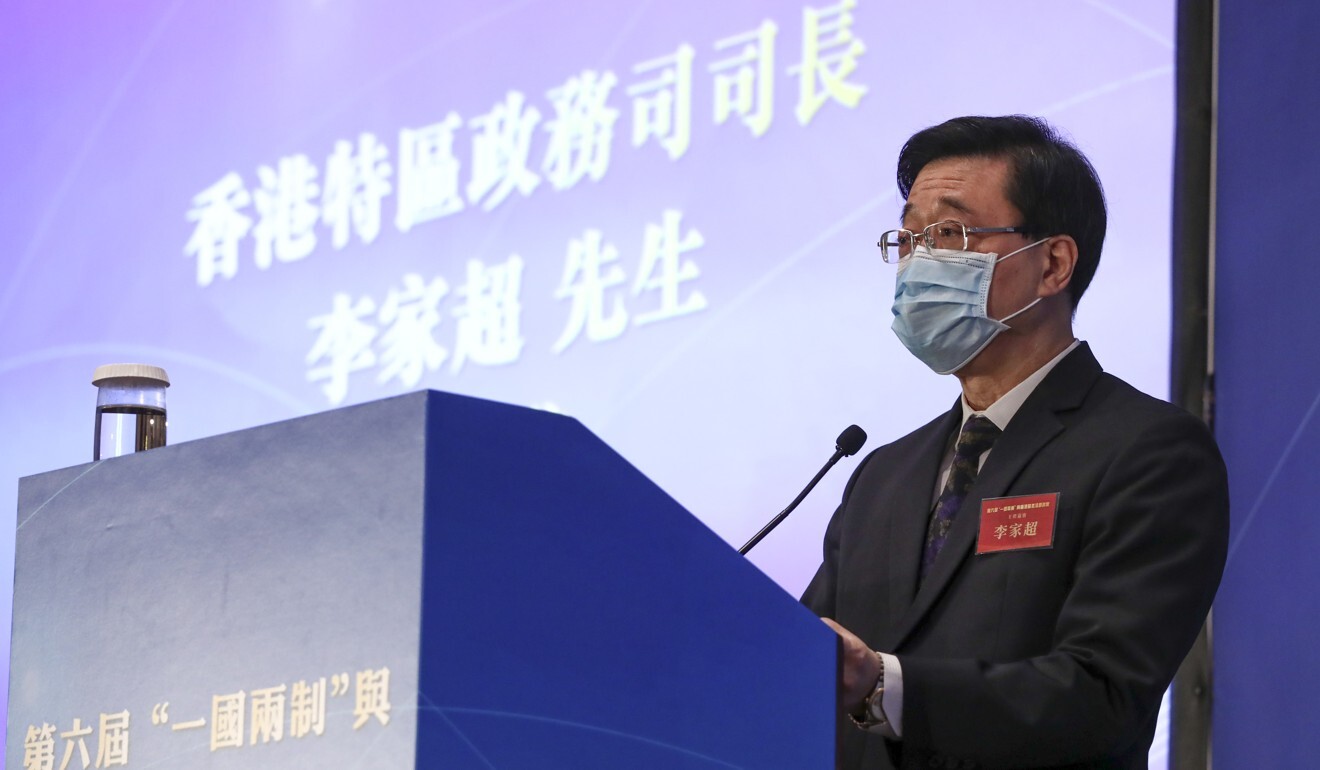
Green light for 153 candidates to run in Hong Kong’s legislative poll proves chamber will not be ‘one-sided’, senior Beijing officials says
- Participation is robust and diverse, says Wang Songmiao, secretary general of central government’s liaison office
- City leader Carrie Lam also reveals plan being finalised to allow Hongkongers living in mainland China to vote at border
Wang Songmiao, secretary general of the central government’s liaison office, made the remarks at a forum attended by Hong Kong officials and Beijing loyalists on Saturday.
“No matter whether it’s pro-establishment, non-pro-establishment or independent people, and regardless of their respective sector or industry, the vetting standards were the same and the vetting procedures were equal,” Wang said.

But Wang argued the new system was fair and said the large field of candidates demonstrated Beijing’s commitment to maintaining competition in the political process.
“This shows that under the default position of patriots ruling Hong Kong, there is robust participation, which is diverse, embracing and recognised widely,” he said.
The new lawmakers should focus “genuinely use their governance power to seek better welfare for Hong Kong” and contribute to the city’s development “under the new era”.
Beijing denounces report to US Congress on Hong Kong as ‘pack of lies’
Separately, Chief Executive Carrie Lam Cheng Yuet-ngor said her government was finalising a new arrangement with mainland authorities that would allow Hongkongers residing on the other side to vote at the border.
“Details will be announced as soon as possible,” she said.
Army of graft-busters to keep close watch on voting during Hong Kong election
In revamping the electoral system, Beijing said the changes were needed after years of filibustering by the opposition in Legco.
The shake-up involved adding 20 more seats to the previous 70, while also slashing the number of directly elected seats from 35 to 20. A new nomination process for hopefuls was adopted, along with the vetting process, which the opposition camp claims is designed to exclude them.
Lo Kin-hei, chairman of the Democratic Party said the disqualification of more than 100 opposition district councillors in recent months already showed the authorities had no tolerance for dissent.
“People can also look at the turnout rate in the coming election to make up their mind themselves,” he said.
Chief Secretary John Lee Ka-chiu, who also spoke at the forum, argued that capable “new faces” had joined the election and the days of mudslinging were over
“Candidates will have to conduct debates that are reasonable and with substance rather than the malicious shouting show,” said Lee, the head of the vetting committee.
Xu Ze, president of the Chinese Association of Hong Kong and Macau Studies, argued the new system would help reduce the political tussles between the government and the legislature, thereby boosting governance.
He said the way the electoral system had evolved was critical as it affected fundamental constitutional issues.
“It is related to what kind of chief executive and Legco [Hong Kong] will have, the fundamentals of Hong Kong’s power structure and operation, national sovereignty and the implementation of Hong Kong’s high degree of autonomy,” he said.

